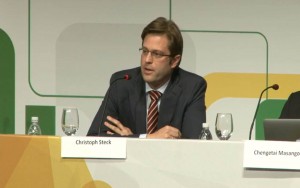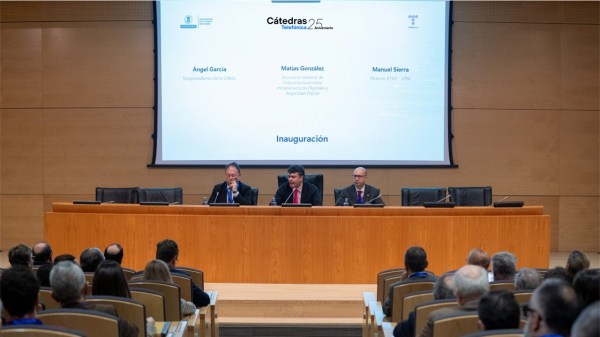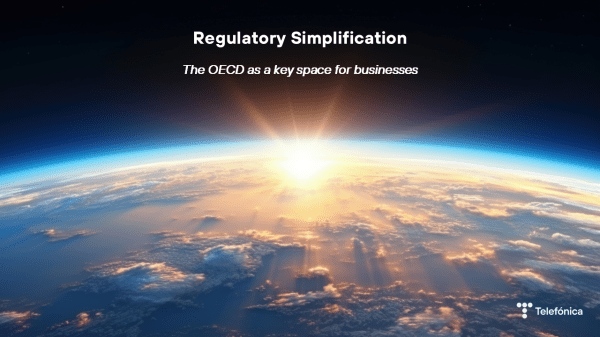NETMundial, the much anticipated Global Multistakeholder meeting on the future of Internet Governance organized by the Brazilian Government, has last Thursday come to an end with the non-binding NETMundial Multistakeholder Statement of Sao Paulo. An open consultation process which included 188 organizations (stakeholder and governments) commenting on the challenges for Internet Governance, 1370 online comments on the draft documents put together based on these contributions by a multistakeholder committee and two days of intensive on site debates with four “open microphones” has achieved to find common ground between all involved stakeholder on Internet Governance principles and on a roadmap for future Internet Governance.
The first comments on this outcome have taken many times a somehow negative stance and also the media echo seems to be rather critical than positive. I believe the reasons for that are two-fold: On the one hand some participants had put simply too many expectations on NETMundial, but it is obviously not possible to fix every governance issues of the Internet in two days. On the other hand, some also have apparently misunderstood what multistakeholder processes are about: finding a broad consensus and therefore compromise between all involved stakeholders. If you add governments to that picture (as NETMundial did for the first time) it is obvious that finding consensus on a global level is difficult and might sometimes not be possible, especially for controversial issues and with limited time. Or in other words: finding broad consensus means that looking for the adequate solutions can take a bit longer, especially on a global level with all its political varieties and views (it might though be possible on regional or national levels, which is why local initiatives of Internet Governance are so important).
I however believe that this is a strength of multistakeholder processes, not a weakness as some commentators and media tried to paint it. Or, as Fadi Chehade, the CEO of ICANN, said in Sao Paulo, quoting an African saying: “If you want to go fast, go alone, if you want to go far, go together!” Everything agreed in Sao Paulo by broad consensus between its around 1200 participants from nearly 100 different nations, means that it is agreed between stakeholders who represent very different views, interests and political interests. It is shared between civil society and the private sector, between developed countries and emerging economies, between the North and the South, East and West.
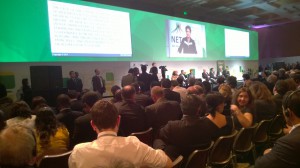
And this shared, common ground is actually much bigger than one might think, having in mind recent talks about a “new war on the Internet”. In detail, NETMundial agreed:
- Internet Governance processes should be:
- Democratic & multistakeholder
- Consensus-driven & collaborative
- Open & transparent
- Distributed & decentralized
- Inclusive & enabling meaningful participation
- Accountable (with independent checks and balances and processes of review and redress)
- Human Rights should apply online in the same way they apply offline. Those rights include, but are not limited to:
- Freedom of expression
- Freedom of association
- Privacy, including not being subject to arbitrary or unlawful surveillance, collection, treatment and use of personal data.
- Accessibility
- Freedom of information and access to information
- Development, including the right to participate in development processes
- Internet should have an open and distributed architecture in an unified and un-fragmented space:
- It should be preserved as a fertile and innovative environment based on an open system architecture
- It should be based on an open, collective approach and uphold the end-to-end nature of the open Internet
- Internet should continue to be a globally coherent, interconnected, stable, un-fragmented, scalable and accessible network-of-networks based on a common set of unique identifiers and that allows data packets/information to flow freely end-to-end regardless of the lawful content
- Intermediary liability limitations should be implemented in a way that respects and promotes economic growth, innovation, creativity and free flow of information
- Internet governance should promote open standards that allow for a global, interoperable, resilient, stable, decentralized, secure, and interconnected network, available to all. Standards must be consistent with human rights and allow development and innovation
- Security, stability and resilience of the Internet should be a key objective of all stakeholders in Internet governance
- Internet governance should allow an enabling environment for sustainable innovation and creativity, where enterprise and investment in infrastructure are essential components
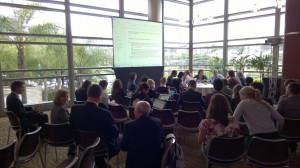
The recommended Roadmap outlines possible steps forward in the process of continuously improving the existing Internet governance framework ensuring the full involvement of all stakeholders in their respective roles and responsibilities, in detail:
- The appointment of stakeholder representatives to multistakeholder Internet governance processes through open, democratic, and transparent processes.
- The need of capacity building together with the development of multistakeholder mechanisms at the national level.
- Increased transparency, accountability and inclusiveness of all organizations with responsibilities regarding Internet Governance and a strengthened Internet Governance Forum. The final document welcomes the announcement by the US government with regard to the IANA transition, asks for its completion by the end of 2015 and makes a call for a rapid globalization of ICANN.
Issues like the different roles and responsibilities of stakeholders, jurisdiction and Net Neutrality are included as relevant points to be further discussed beyond NETmundial. As a way forward, it recommends outcomes of Net Mundial to be fed into other processes and forums, such as the Internet Governance Forum of the UN.
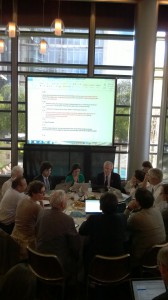
And there is more which lets NETmundial stand out from other political gatherings about the Internet we have seen over the last years:
- The NETMundial Multistakeholder Statement of Sao Paulo is the first document which agrees globally between all stakeholder groups and governments of different regions of the world a set of specific and shared common principles for Internet Governance. Earlier documents from the G8 or OECD or some stakeholder groups like civil society have a much narrower basis of support.
- NETMundial has for the first time combined the best of the multistakeholder and multilateral world: open, broad debate between all relevant stakeholders, but also inclusion of governments on equal footing and the joint drafting of a final statement and outcome document. While multilateral, UN-style processes run mainly without the valuable knowledge of stakeholder from civil society, the private sector and the technical community, multistakeholder processes lack the authority of governments and their experience in defining outcomes and agreeing common views in final documents which can help greatly in other processes. In other words: future processes and debates will be able to build on what was agreed at NETMundial.
Of course, only the future will show if NETMundial has created a new “Magna Charta of the Internet”. Of course, many issues need more debate, but this is just the beginning of a longer journey to find solutions for the challenges of the Internet. However, I believe that there is good hope that the “Sao Paulo Principles” might in fact serve in the future as a reference point for all Internet Governance processes and debates. Any organization, any state and any stakeholder group which is not going to adhere to these broadly agreed principles will need to explain why they do not respect them. And we know from history that also non-binding documents can have a lasting impact: the UN Declaration on Human Rights was already drafted in 1948, but was “non-binding” and did not become universally binding on states before the end of the 1960ies. Who knows if something similar might not happen with the principles agreed in Sao Paulo as well?
As I said in the closing ceremony of NETMundial: we should thank the Brazilian government and the organizers CGI and 1Net for the great effort and work they have put into NETMundial. But we should also congratulate all of us, all participants, stakeholders and governments, for what we have achieved by dialog and debate and for the collaborative spirit which united all of our work in Sao Paulo.
I hope we see each other around at the IGF in Istanbul in September to continue that work!
What is your view on NETMundial and its outcome?

